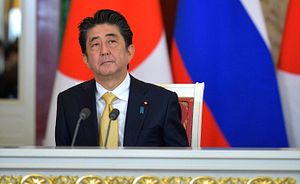Japanese Prime Minister Shinzo Abe has been on a charm offensive recently on climate change. He’s talked about Japan’s leading role in taking action on climate issues, and his intention to make climate change a key agenda item at this year’s G20 meeting. This should come as no surprise given how extreme weather events such as heat waves and flooding have recently wracked part of the country.
But Abe’s addiction to coal shows that this charm offensive lacks substance, especially when it comes to Japan’s own energy policy. In Japan’s latest energy strategy published in June, coal remains a major part of the energy mix into the future. Currently, the coal fleet in Japan is growing, not decreasing: At the moment, 35 new coal power plant are in the pipeline all over Japan, adding to the around 100 coal plants already in operation. If all of these plants are built, 107.920 million tonnes of CO2 will be emitted annually, and according to analysis by Climate Analytics, Japan’s share of the Paris Agreement carbon budget would be exceeded by about three times.
Among G7 nations, Japan is also one of the biggest investors in coal power globally. Besides expanding the domestic coal fleet, Japan is subsidizing the export of coal-fired power plants to other countries like Indonesia and Vietnam.
Meanwhile, Abe’s stubborn push for an unrealistic amount of nuclear plant restarts is slowing the necessary large-scale phase in of renewable energy. Even though most of Japan’s nuclear plants remain out of operation and are unlikely to be brought online anytime soon due to safety issues, public opposition, and legal hurdles, the government has insisted on keeping the share of nuclear high in its 2030 energy scenario. This in turn translates to high uncertainty about future electricity generation capacity as well as hindering grid access for renewable developers.
Despite the lack of consistent climate action from the Japanese government, many of the nation’s major life insurance companies and banks have recently revised their policies, showing increasing commitment to cut finance flows to coal. Their decisions reflect the global reality of the risk in investing in stranded assets.
As the host for next year’s G20 meeting, Japan’s governmental policies should take the same direction. Abe’s acknowledgement of the importance of climate action is commendable. However, unless his government makes major changes in official policies to show how Japan will actually cut its fossil fuel addiction, they will remain empty words.
Hisayo Takada is the Deputy Program Director at Greenpeace Japan

































